At the beginning of the second half of the XNUMXth century, many residents of the Marina Alta They decided to get closer to the sea to build a first or second residence. Until then the mountains were disputed, but if they managed to cross the cumbersome paths they would find a little peace near the water. Although not as much as you think. What we know today as the first line was then many meters from the shore. The beaches They had widths of more than 50 meters in several sections, and in the distance, behind the sand, some humble single-family home was built after purchasing land and obtaining all the necessary permits. Regulated and completely legal homes.
This is stated by the president of the Association for the Defense of the North Beaches of Dénia, Francisco Ros, who represents thousands of residents affected by the demarcation of the Coasts. But what is happening and where does this situation come from?
The current process that has brought hundreds of neighbors onto the streets does not only affect large real estate projects that were born with the cement boom and speculation. As often happens, the most affected are families who never built a few meters from the sea and never took away land that is now recovering water, as is often misunderstood. They acquired land to build a home like someone who buys a legal apartment in a central neighborhood of Dénia.
Now, imagine that after buying that apartment in Dénia a higher law comes out that directly affects you. At first it seems like a logical and positive law, since its main objective is to safeguard the maintenance and proper functioning, for example, of the sewage system. You have to read until you get to the point where it says that the State could claim the building where the apartment is located if the water reaches it. But many assumptions would have to be combined and it is impossible, apparently, since the purpose of the law is to prevent this from happening by carrying out the care and maintenance of the sewage system, which is its main objective.
A double-edged law
The Coastal Law of 1988 is that law, which is presented in its first article as follows: «The purpose of this Law is the determination, protection, use and policing of the maritime-terrestrial public domain and especially of the shore of the sea. ». The many meters of beach that were in front of the coastal houses disappeared over the years. The water was beginning to leak out of the sewers, and no one was ensuring compliance with the law, since neither the sewage system was inspected nor regeneration work was being studied. It was claimed, but the beach kept disappearing and the water getting closer. Where was that protection of the public-terrestrial domain that they let die?
We come to the present and they decide to draw a boundary to delimit what is public land and what is not. And a law that for decades has flown over Dénia without stopping to look at its beaches suddenly puts them in the spotlight. It was no longer that protective tool.
To draw the boundary, the plans of '88 are not taken into account, of course. It is drawn taking into account the situation at that time, with a coastline that has reached there because the law has not acted to prevent it. This affects 3600 homes, of which 135 will become public domain.
At the same time, however, coastal regeneration work is finally being carried out and dozens of meters of sand have been regained in front of Les Deveses. Has the line adapted to the new reality? It is neither drawn according to the situation when the law was created nor is it drawn according to the current situation, but rather that of a few months ago when it was when the least public domain remained, and there is no more to talk about.
What happens to homes that become public domain?
These complete homes or parts of them, such as terraces or swimming pools, will belong to the State if an agreement is not reached after filing appeals and the long judicial processes that are on the horizon. However, the future is not very optimistic.
If they obtain the approval of Costas, the owners of these homes can obtain a concession to continue using them for a period that can reach 75 years, although from the first they can also be claimed to create parks or walks. This is if Costas finally accepts the concession. That is to say, the families who owned and lived in these houses would become temporary tenants of their homes, no matter how many generations of them have passed through those doors.
Do the owners receive any compensation as occurs in the case of expropriations? Well no.
What is the easement zone and how does it affect the 3600 homes in Dénia?
In the easement area, which affects 3600 homes on the Dénia coast, the houses do not become public domain, but their use is legally limited. That is, the families continue to be the owners, but there is a higher body, in this case the Ministry, with decision-making power over them.
The main and most immediate drawback is that residential use in any form is prohibited. This does not mean that you cannot continue living in the houses, but building on empty land will no longer be allowed, expansion of the property will be prevented and in the case of having to face renovations due to major problems, such as landslides due to storms as happened In Les Deveses, great impediments can be put in place to rebuild the walls.
In addition, the purchase and sale will be prohibitive since banking entities do not grant loans for the acquisition of homes that are located in an easement area.
And the future?
It can be assumed that this is the first phase, since the forecast is that the sea will continue to rise. In fact, according to the forecasts of the Generalitat itself, at the end of this century the sea will have surpassed that area of public domain and will have flooded several meters of the easement area (as can be seen in the map that accompanies these lines).
Therefore, the apparent only solution is to redraw the demarcation line, updating it in a new phase within a few years that begins to appropriate more and more land, and homes, far from the first line. The previous step to an inevitable arrival of the sea.
Possible alternative solutions
Inevitable? It is one of the main complaints of the association, that the Coastal Law is being used only to take over properties that were built following the law and complying with the details of the urban planning plans or regulations. According to Ros, use could also be made of this law to take measures like other countries do, recovering the land from the sea not only with regenerations on the beaches, but with buried dikes that perform functions similar to corals or posidonia to stop the arrival of the wave, installing Italian-style T-shaped breakwaters or other projects that work successfully in areas where they live below sea level, such as in northern Europe.
Delaying the demarcation assuming the advance of the sea is inevitable is not a solution, but rather a surrender. This should be the last option of the wide range of possibilities allowed by a law that was created to protect the coast of that time and which, however, is used to facilitate future coasts as a result of inaction.

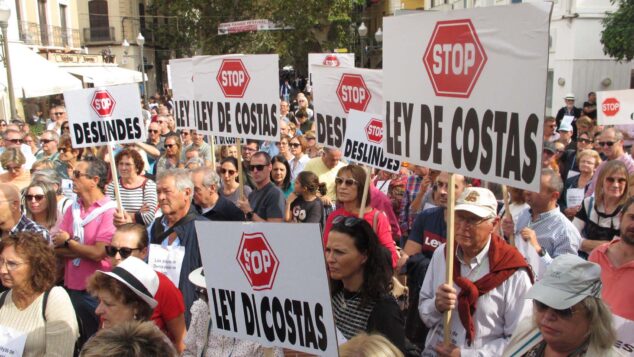

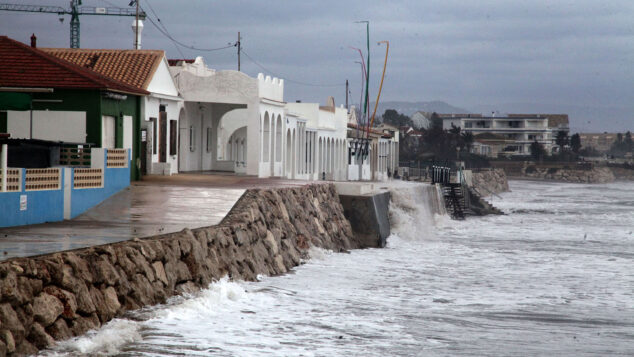
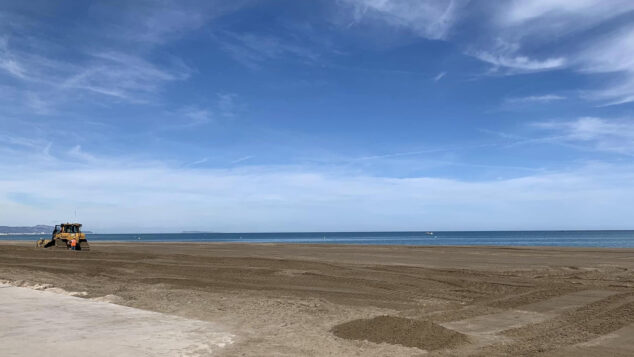

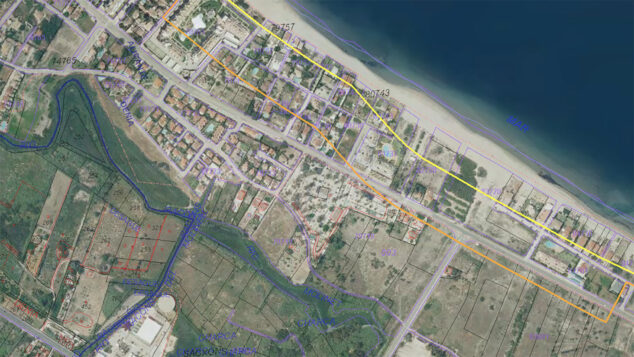
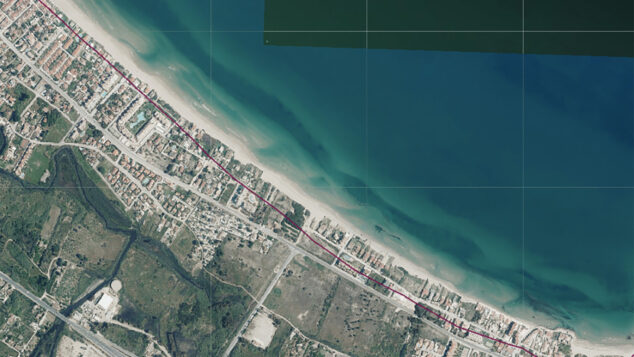






The regression of the coast is a fact; if no action is taken, a new natural beach will be prevented. Coastal dynamics depend on many factors, one is the lack of sediment in the reservoirs, more actions on the coast, and climate change means that in the event of a storm, nothing guarantees the safety of people.
If they return to be propet of the beach they will be able to sleep in the dark, we will throw away the cases and the things that are missing to recover our natural paradise, now it is time to come to our land and mortgage our future. In our fills they will return to enjoy what our fills will destroy.
To foolish words, deaf ears. You have to be very very stupid and ignorant to say what you say. The houses are legal. Let them complain to the town councils who are the ones who granted the licenses
Ja em complain, and they have told them to throw away the cases hahahaha, to cry to the plorería
????????????
Absolutely right!
How painful is aging.
This is proclaiming the revolution and the forcible seizure of private property. It is not a problem of environmentalists, it is fanatical Marxism that justifies any means at the expense of the rights of others... surely they are going to confiscate nothing from this mom...
Nobody confiscates. A law is simply enforced. The complaints to the city council... who are the ones who enter...
I understand your concern, you mortgaged your future a long time ago.
I see a lot of envy of people who have never worked to be able to have something, nothing more than envy of those who try to progress and not be parasites of the system.
First of all, my solidarity with the neighbors, to whom I believe that the best solution or compensation must be given.
Second, unfortunately experience is showing us that regenerations are bread for today and hunger for tomorrow and that the human action of putting up dams and the like alters the currents and generates problems and rises in the sea in other points, so it is necessary to change the site problem
I believe that we must allow the right of use in perpetuity to the owners and their heirs, and offer them compensation for the situation, but in no way allow new works, much less buildings in that area, such as the terrible urbanization of Las Olas, whose realization is intolerable
First, we must find a solution for the neighbors, I am convinced of that.
Second, we must all be aware that unfortunately this area is an area of increasing risk and that the patches we apply only postpone the problem. Human beings can hardly do anything against the almighty sea.
Thank you very much for your support, LLuis.
I don't think that "bread for today and hunger for tomorrow" is going to be the case. I don't know if you know and knew the area that goes from what was the Costa de la Calma, to the southern breakwater of Les Deveses beach. The owners of those houses spent many years placing breakwater rocks in front of their houses to protect them. However, years after the regeneration, with the famous Gloria, they didn't even notice it. They still had the same beach. What does not make any sense, nor logic, is that next to properties that are intended to be demarcated or that become an easement area, large urbanizations are being built that will not be affected by any of the 3 lines, and that have received the permits from the city council for its construction. This seems suspicious to me, to say the least, and gives food for thought, if they are making large beaches to remove private homes and build large buildings, where there will be hundreds of people who will pay taxes. Now it turns out that Denia will be the city of luxury villas and developments and the properties of ordinary citizens will have no place. I am sure that I am not the only one who is beginning to think that on this issue "We are not all equal before the law", and that the administrations are condoning or carrying out many inequalities and illegalities, what could be behind these abuses?
The only way to stop the Coastal Law is the union of those affected. A meaningless law that is applied to the convenience of future interests. In the XNUMXst century, a blatant theft. The boundaries are applied selectively. Where I live, in Galicia the boundary goes behind the homes or in front with an incredible comparative insult, without justification or sense. City councils have to come to the defense of their taxpayers and ensure that they respect existing homes. They don't fool anyone in the future, the Coast will be the usual ones to make money.
Report to the city council if what you say is true...
Sie haben absolute Recht. In other words, the larger Appartementanlagen genehmigt, deren Lage nach dem Ley de Costa eigentlich nicht zulässig ist. Die Abgrenzung des Schutzbereiches scheint rein willkürlich zu sein. Ein Rechtsstaat erfordert indeseindeutige klare und gerichtlich überprüfbare Reglungen, die einheitlich angewendet werden.